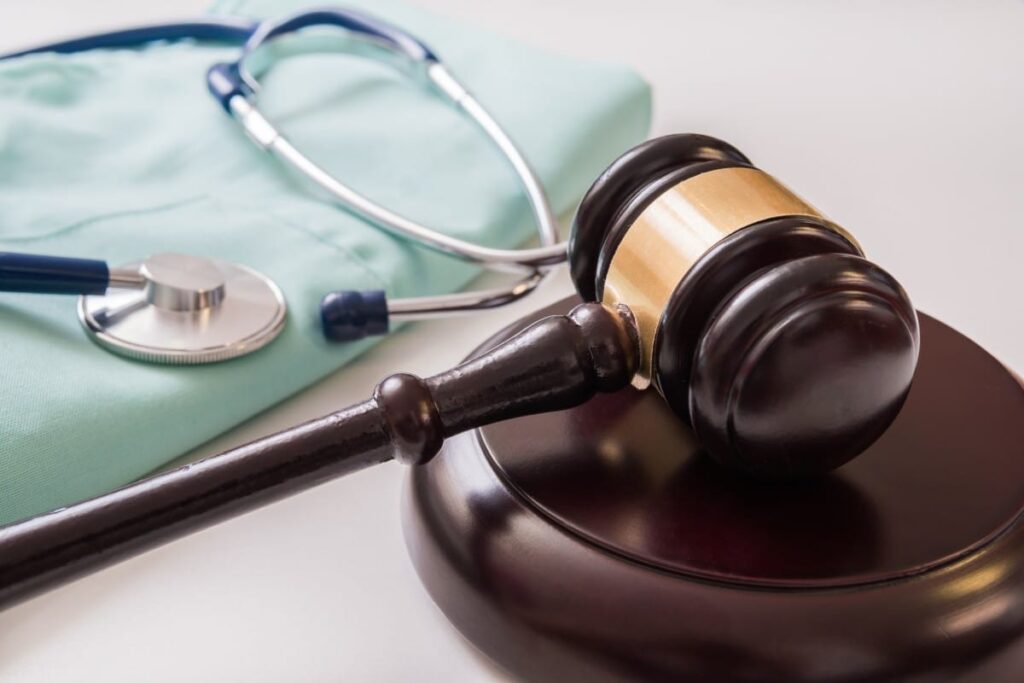Medical Malpractice

MEDICAL MALPRACTICE OCCURS WHEN A MEDICAL PROFESSIONAL, THROUGH A NEGLIGENT ACT OR OMISSION, CAUSES DEATH OR INJURY TO A PATIENT.
In the community of medical professionals, there must be accountability and responsibility to the quality of care that each patient receives. Hospitals, doctors, nurses, and their staff have a legal obligation to perform their duties with the highest level of competence and care, otherwise their patients can suffer serious or fatal injuries. When a patient fails to receive the proper treatment due to errors or omissions related to diagnosis, treatment, or follow up care of health management, a claim can be made for Medical Malpractice. The attorneys at the law offices of Wright & Associates, P.C. are highly skilled and experienced lawyers who are dedicated to helping you recover the compensation that you are entitled to. The dedication, experience, and skills of the attorneys at the law offices of Wright & Associates, P.C. have enabled our firm to recover millions on behalf of our clients. Speak to one of our medical malpractice attorneys at Wright & Associates, P.C., today to learn more.
BASIC REQUIREMENTS FOR A MEDICAL MALPRACTICE CLAIM
To prove that medical malpractice occurred, you must be able to show all of these things:
1.) A doctor-patient relationship existed. You must show that you had a physician-patient relationship with the doctor you are suing — this means you hired the doctor and the doctor agreed to be hired. For example, you can’t sue a doctor you overheard giving advice at a cocktail party. If a doctor began seeing you and treating you, it is easy to prove a physician-patient relationship existed. Questions of whether or not the relationship exists most frequently arise where a consulting physician did not treat you directly.
2.) The doctor was negligent. Just because you are unhappy with your treatment or results does not mean the doctor is liable for medical malpractice. The doctor must have been negligent in connection with your diagnosis or treatment. To sue for malpractice, you must be able to show that the doctor caused you harm in a way that a competent doctor, under the same circumstances, would not have. The doctor’s care is not required to be the best possible, but simply “reasonably skillful and careful.” Whether the doctor was reasonably skillful and careful is often at the heart of a medical malpractice claim. Almost all states require that the patient present a medical expert to discuss the appropriate medical standard of care and show how the defendant deviated from that standard.
3.) The doctor’s negligence caused the injury. Because many malpractice cases involve patients that were already sick or injured, there is often a question of whether what the doctor did, negligent or not, actually caused the harm. For example, if a patient dies after treatment for lung cancer, and the doctor did do something negligent, it could be hard to prove that the doctor’s negligence caused the death rather than the cancer. The patient must show that it is “more likely than not” that the doctor’s incompetence directly caused the injury. Usually, the patient must have a medical expert testify that the doctor’s negligence caused the injury.
4.) The injury led to specific damages. Even if it is clear that the doctor performed below the expected standards in his or her field, the patient can’t sue for malpractice if the patient didn’t suffer any harm. Here, are several examples of the kind of harm that patients can bring a lawsuit for:
- physical pain
- mental anguish
- additional medical bills, and
- lost work and lost earning capacity.
COMMON TYPES OF MEDICAL MALPRACTICE
A wide variety of situations can lead to a medical malpractice claim — from a doctor leaving a sponge in a patient’s stomach during an operation to failing to tell a patient that a prescribed drug might cause heart failure. Most medical malpractice claims fall into one of these categories:
Failure to diagnose: If a competent doctor would have discovered the patient’s illness or made a different diagnosis, which in turn would have led to a better outcome than the one actually achieved, then the patient may have a viable medical malpractice claim.
Improper treatment: If a doctor treats the patient in a way that no other competent doctor would, the patient could have a medical malpractice claim. In a similar vein, it may also be malpractice if the doctor selects the appropriate treatment but administers it incompetently.
Failure to warn a patient of known risks: Doctors have a duty to warn patients of known risks of a procedure or course of treatment — this is known as the duty of informed consent. If a patient, once properly informed of possible risks, would have elected not to go through with the procedure, the doctor may be liable for medical malpractice if the patient is injured by the procedure (in a way that the doctor should have warned could happen).
SPECIAL REQUIREMENTS IN MEDICAL MALPRACTICE CASES
Many states have special rules and procedures for medical malpractice claims. It is important to know about these rules and follow them carefully.
- Medical malpractice cases must be brought soon after the injury. In most states, you must bring a medical malpractice claim fairly quickly — often between six months and two years, depending on the state. The time period in which you must bring the lawsuit is called the “statute of limitations.” If you don’t file the lawsuit within the specified period of time, the court will dismiss the case regardless of the facts. The statute of limitations for medical malpractice in New York is 2 1/2 years.
- Special medical malpractice review panels. Many states require the patient to first submit the claim to a malpractice review panel. This panel of experts will hear arguments, review evidence and expert testimony, and then decide whether malpractice has occurred. The panel decision does not replace an actual medical malpractice lawsuit, and the panel cannot award damages, but it’s a hoop the patient must jump through before getting to court. The findings of the review panel can be presented in court, and courts often rely on a review panel’s finding of no medical malpractice to throw out a case before it goes to trial.
- Special notice requirements. Some states require that the patient give the doctor notice of the malpractice claim, in the form of a basic description, before filing anything.
- Expert testimony is required. Expert opinions are often a crucial feature of the patient’s case. A qualified expert is usually required at trial. (And often, expert testimony or an expert affidavit is required at the malpractice review panel proceedings prior to commencing trial.) State rules vary as to what makes somebody qualified to provide expert medical testimony, but generally it is someone with experience in the particular field at issue. In a very limited number of circumstances, expert testimony is not required, such as when a surgical towel is left inside the patient after a surgery.
CONTACT OUR NEW YORK CITY LAW FIRM
If you were injured as a result of medical malpractice, New York law may permit you to bring legal action against the physician(s), nurse(s), hospital(s), or medical facility, that treated you. Please contact our law firm today so that our experienced attorneys can fight for your legal rights and seek the maximum compensation that you deserve for your injuries.
NO FEE UNLESS WE WIN YOUR CASE
We give all our medical malpractice clients a promise that if we do not recover monetary damages in your case, we will not charge you an attorney fee. If we take your case, we only get paid if we win your case.
If you have been injured as a result of medical malpractice, contact us for a free initial consultation. There is no fee unless we are successful. Call 347-886-9472 or fill out our contact form for a FREE no obligation legal case evaluation. Our lawyers provide free legal advice to premise liability victims.
To discuss your case with a personal injury lawyer established in medical malpractice lawsuits, please call 347-886-9472 We serve all of New York, including Manhattan, Bronx, Queens, Brooklyn, Long Island, Rochester, Albany, and Buffalo.













